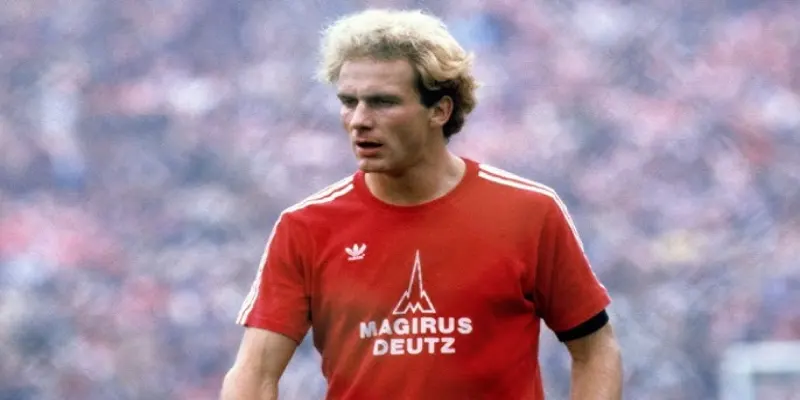
Karl-Heinz Rummenigge: From Pitch Icon to Power Broker
Karl-Heinz Rummenigge is more than a football legend—he’s a symbol of the sport’s transformation. From winning two Ballon d’Ors to leading Bayern Munich’s global success, his legacy blends brilliance on the pitch with visionary leadership. His influence shaped modern club strategy, international policy, and even [kèo nhà cái] dynamics in the football business. Rummenigge’s journey continues to echo through the sport’s past, present, and future.
Karl-Heinz Rummenigge’s Impact on Bayern Munich
Rummenigge’s time at Bayern Munich left an indelible mark on the club that continues to influence its ethos today.
Establishing Bayern as a European Powerhouse
Under Rummenigge’s influence, Bayern Munich transformed into a club that not only dominated domestic competitions but also became a key player on the European stage.
His performances during the European Cup laid the foundation for future successes, demonstrating how a single player’s dedication can drive a club forward in pursuit of excellence.
Cultivating Young Talent
Rummenigge’s presence in the squad helped cultivate younger talents who later became stars in their own right. He took on the role of mentor for younger players, sharing his extensive knowledge of the game, tactics, and sportsmanship.
The values he instilled, both on and off the pitch, are reflective of a legacy of nurturing and fostering talent, ensuring that the future generations at Bayern Munich continue to uphold the standards he helped establish.
The Rummenigge Method
Over time, Rummenigge became synonymous with quality and professionalism at Bayern. With an unwavering commitment to hard work and excellence, he became known for what many referred to as the “Rummenigge Method.”
This method emphasizes tactical awareness, perseverance, and adaptability—qualities that he embodied throughout his career and encouraged in his contemporaries and successors.
Karl-Heinz Rummenigge’s Role in German Football
Karl-Heinz Rummenigge played a pivotal role in shaping modern German football. His influence extended beyond his playing years into administrative roles, assisting in the development of football in Germany.
Player and Leader in the National Team
His leadership on the pitch during a transformative time for German football cannot be understated. Rummenigge was a part of a generation that brought a new level of professionalism and discipline to the national team.
As the team evolved and transitioned through various phases, his adaptability allowed him to comfortably assume different roles, ensuring consistent performance and inspiring his teammates to follow suit.
Contribution to Football Governance
After retiring, Rummenigge continued to contribute to the landscape of German football in administrative capacities. He served as a member of the supervisory board for Bayern Munich and later took on the role as CEO.
His insights into both the game and the business of football have proven invaluable, leading to strategic growth and decision-making that paved the way for Bayern’s continued success.
Advocacy for German Football
Rummenigge has also been an outspoken advocate for German football on an international stage, emphasizing the importance of youth development, financial responsibility, and ethical practices.
His ability to engage in dialogue with global football institutions illustrates his commitment to the sport and dedication to improving it for the generations to come.
Notable Matches of Karl-Heinz Rummenigge
Throughout his illustrious career, Rummenigge participated in several standout matches that punctuated his illustrious journey.
The 1982 World Cup Semi-Final
One of the defining moments of Rummenigge’s international career came during the 1982 World Cup semi-final against France. With the match going into extra time, Rummenigge displayed sheer brilliance, contributing crucial goals that demonstrated his ability to thrive in high-pressure situations.
This match is often remembered not just for its intensity but for Rummenigge’s display of leadership and skill, as he guided his team through one of the most dramatic encounters in World Cup history.
The 1980 European Championship Final
Winning the UEFA European Championship in 1980 remains a highlight of Rummenigge’s career. His two goals in the final against Belgium were the pivotal moments that clinched the title for West Germany.
Rummenigge’s performance showcased his capability to perform in vital matches and solidified his reputation as a big-game player, epitomizing the determination and rigor expected from an athlete of his caliber.
Iconic Bundesliga Matches
Rummenigge also had several memorable outings in the Bundesliga, where his performances were nothing short of magical. Matches against powerful rivals like Borussia Dortmund and Hamburger SV became showcases for his technical skills.
In those contests, Rummenigge often secured game-winning goals or assists, further solidifying his place in Bayern’s storied history and in the hearts of fans.
Karl-Heinz Rummenigge’s Leadership Qualities
One of the most compelling aspects of Rummenigge’s career is his remarkable leadership abilities.
Leading by Example
Rummenigge’s approach to leadership was characterized by leading by example. Whether on the training ground or during matches, he embodied the principles of hard work, discipline, and commitment.
His teammates often looked to him during challenging times, as he maintained composure and focused energy on collective success rather than individual accolades.
Communication and Team Cohesion
Rummenigge understood the value of communication in sports. He had a way of fostering relationships, both with teammates and coaches, and was adept at ensuring everyone understood their roles.
His ability to motivate others and instill confidence was critical, especially in pressure situations where decisions needed to be made swiftly and effectively.
Visionary Thinking
Karl-Heinz Rummenigge‘s insights into the game extended beyond the tactical aspects; he possessed a visionary approach that allowed him to anticipate opponents’ moves. His strategic mindset contributed significantly to the team’s on-field success.
As a captain, he often galvanized the team towards shared objectives and inspired unity, which are hallmarks of any great leader.



